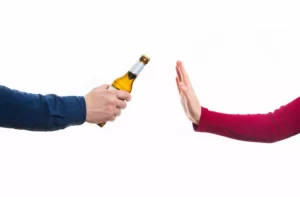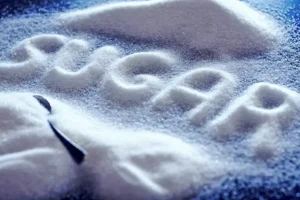
The result was that the intoxicated men were more aggressive than the sober men; however, in the circumstances where the women were highly provoked, both the intoxicated and sober women displayed higher levels of aggression, which could resemble the men. This suggested that both the women and men can be equally aggressive and alcohol does not seem to play a prominent role in the gender biases in aggression. In line with this, using a sample of 85 countries, https://ecosoberhouse.com/ Weiss et al. (2018) reported no association between alcohol consumption level and homicide rates; however, they found a positive association between hazardous drinking pattern and homicide rates. Contrary to this, a cross-sectional analysis of data from 83 countries that controlled for several possible covariates reported that countries with riskier drinking patterns did not have higher homicide rates compared to countries with less risky drinking patterns.
1 Outcomes of Alcohol-adapted Anger Management Treatment
- Recovering from an alcohol use disorder can be isolating, especially when you consider how widespread drinking culture is in the United States.
- Importantly, future research should also compare the existing treatments of anger and aggression including mindfulness and cognitive behavioral therapy.
- This phenomenon highlights the complex interplay between alcohol and emotional regulation, underscoring the importance of mindfulness and self-awareness in alcohol consumption.
- Additionally, there is evidence that chemical and biological factors play a role.
- We will also identify some ways to manage alcohol-related rage once it occurs.
A lack of impulse control can make a person unable to resist the sudden, forceful urge to fly into a rage or act aggressively. The urn random assignment was carried out by the project coordinator via a computerized program. Overall, exhibiting one or a combination of the above factors can increase your chances of becoming angry when intoxicated. As a whole, alcohol use naturally heightens emotions, and for people who are predisposed to aggressive tendencies, it can quickly make bad scenarios worse. The goal of outpatient treatment is to provide therapy, education, and support in a flexible environment.

Confusion between Anger, Aggression, and Hostility
Therapists received treatment manuals; four days of training including role plays, demonstrations and simulations; and supervised experience in both modalities with several clients prior to beginning the study. In order to maintain adherence to the treatment protocols, therapists referred to a condition-specific and session-specific content outline during each session. These content outlines provided reminders as to the manualized session content relevant to each therapy session.
Effects of Alcohol on Human Aggression
- Prevention efforts can also be directed at the potential impact of bystanders, who are oftentimes present in interpersonal violence situations [42].
- Yet, when these suppressed emotions resurface, they often manifest as different types of anger issues.
- Alcohol causes changes in the prefrontal cortex (PFC), leading to disinhibition.
- Neither gender had any significant impact on the results (Gan et al., 2015).
- Generally, men have recorded higher activation of the amygdala (McRae et al., 2008) and the PFCs (Rahko et al., 2010) during emotional reactions.
- Intergender neurological and behavioral responses to alcohol are also influenced by ethanol metabolism (Arthur et al., 1984) and influences of hormones such as testosterone, cortisol, estradiol, progesterone, and oxytocin (Denson et al., 2018).
Finally, despite positive ratings of treatment satisfaction, attendance was less than ideal for both interventions. Analyses utilized the intent-to-treat sample, i.e., all participants without regard to attendance and treatment completion. Potential modest treatment responses among clients with little or no exposure to treatment may have obscured positive effects for those receiving all or nearly all of the intervention. If drinking causes a blackout, you may not even remember being aggressive unless someone reminds you about it. By perpetuating such behavior, people can end up damaging meaningful relationships — yet another effect of alcohol-based aggression.
When Coping with Alcohol Use Disorder
Many people with “angry drunk” tendencies also end up on the wrong side of law. The lack of inhibitions that causes them to lose their temper can lead to bar fights, road rage, impulsive violence (even against friends and loved ones) and other events that may cost them a night in jail or worse. People known to have anger outbursts alcoholic rage syndrome on alcohol can end up destroying relationships. Even the people who care about them the most can be unable or unwilling to continue to tolerate the abuse. One study published in a journal called Cognitive, Affective, & Behavioral Neuroscience sought to explore factors that make some people more aggressive when they drink.

Since this research was conducted, the study of predictors of outcome has progressed substantially (c.f., Adamson, Sellman & Frampton, 2009 for a review). On the flip side, alcohol dependence commonly leads to significant withdrawal symptoms that are often side effects of alcohol addiction. Emotional withdrawal symptoms can include agitation, anxiety, depression, irritability, and tension as well as sleep disturbances, insomnia, and physical discomfort. In addition to cognitive behavioural therapy, mindfulness-based therapy is commonly used to treat anger and aggression. Mindfulness was found to be negatively related to anger and aggressive behaviour among drivers (Borders et al., 2010; Stephens et al., 2018).
- Before exploring the effects of alcohol on brain functions, it’s crucial to understand the connection between alcohol consumption and anger.
- Did you recently experience an incident that stemmed from your alcohol-related aggression?
- Research suggests several factors may be involved, including personality, genetics, social considerations, brain chemistry, and brain changes.
- When you live with or care for someone who becomes abusive when they’re intoxicated, the consequences may well be more than just hurt feelings.
- Factors such as personality traits and comorbidities with other psychiatric disorders along with environmental stressors influence how one could engage in violent behaviors.
- At the same time, alcohol hinders the neurotransmitter glutamine, which has a stimulating effect.
Modeling Alcohol-Aggression Etiology: Instigating, Impelling, and Inhibiting Factors


